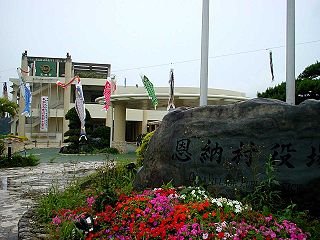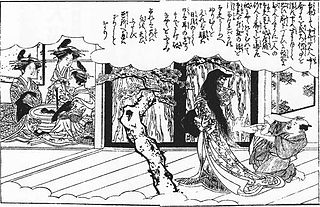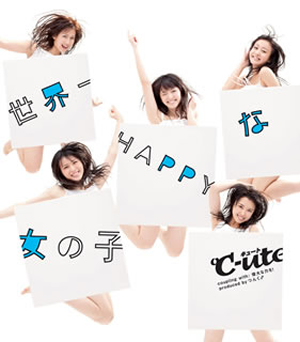Onna is a Local Government Area in Akwa Ibom State, Nigeria.
Onna may also refer to:
- Onna (L'Aquila), a town in Abruzzo, Italy
- Onna, Okinawa, Japan
- Onna, Hampshire, England, UK
Onna is a Local Government Area in Akwa Ibom State, Nigeria.
Onna may also refer to:

Onna is a village located in Kunigami District, Okinawa Prefecture, Japan.
Yuki, Yūki or Yuuki may refer to:

Yuki-onna is a spirit or yōkai in Japanese folklore that is often depicted in Japanese literature, films, or animation.
Ona or ONA may refer to:

A Taxing Woman is a 1987 Japanese film written and directed by Juzo Itami. It won numerous awards, including six major Japanese Academy awards.

Motoko Yano, better known as Machiko Kyō, was a Japanese actress who was active primarily in the 1950s. Considered one of Japan's earliest sex symbols, Kyō is best known for her critically-acclaimed work with directors Akira Kurosawa, Yasujirō Ozu, Kenji Mizoguchi, Mikio Naruse, Kon Ichikawa, Teinosuke Kinugasa, Hiroshi Teshigahara, appearing in films such as Rashomon, Ugetsu, Gate of Hell, Street of Shame, Floating Weeds, Odd Obsession and The Face of Another.

Kuchisake-onna is a malevolent figure in Japanese urban legends and folklore. Described as the malicious spirit, or onryō, of a woman, she partially covers her face with a mask or other item and carries a pair of scissors, a knife, or some other sharp object. She is most often described as having long, straight, black hair, pale skin, and otherwise being considered beautiful . She has been described as a contemporary yōkai.

Junko Utada, known primarily by the stage name Keiko Fuji was a Japanese enka singer and actress. She had success in Japan in the 1960s and 1970s with her ballad-type songs. She was married on-and-off with Utada Teruzane, and was the mother of Japanese pop singer Hikaru Utada.

Onna-musha (女武者) is a term referring to female warriors in pre-modern Japan. These women fought in battle alongside samurai men. They were members of the bushi (warrior) class in feudal Japan and were trained in the use of weapons to protect their household, family, and honour in times of war. They also have an important presence in Japanese literature, with Tomoe Gozen and Hangaku Gozen as famous and influential examples representing onna-musha.

Futakuchi-onna is a type of yōkai or Japanese monster. She is characterized by her two mouths – a normal one located on her face and a second one on the back of the head beneath the hair. There, the woman's skull splits apart, forming lips, teeth and a tongue, creating an entirely functional second mouth.

Nure-onna is a Japanese yōkai which resembles a reptilian creature with the head of a woman and the body of a snake. They are also seen as a paranormal phenomenon at sea under the name of nureyomejo. In legends, they are often said to consume humans, but they have no single appearance or personality.
Snegurochka is a character in Russian fairy tales.

Ground Control to Psychoelectric Girl is a Japanese light novel series written by Hitoma Iruma, with illustrations by Buriki. The series includes eight novels released between January 2009 and April 2011, published by ASCII Media Works under their Dengeki Bunko imprint. A manga adaptation was serialized in ASCII Media Works's Dengeki G's Magazine. A 12-episode anime adaptation by Shaft aired in Japan between April and July 2011, with an original video animation episode released in February 2012.

"Sekaiichi Happy na Onna no Ko" is the 17th major single by the Japanese idol group Cute, released in Japan on September 7, 2011 on the Zetima label.

Itsumademo... Teddy Bear / Koitsuri Girl Ai Girl ~Fishing Boy~ is the third single by Japanese artist misono under the pseudonym "Me", and nineteenth single overall. The single charted low on the Oricon charts, only reaching No. 77 and remaining on the charts for two weeks. It became her last single released before her fourth studio album Uchi, and her final single as an artist.
Guren is a Japanese word, which means "crimson-colored lotus" and is used in an artistic connotation.
Daigaku is the Japanese word for "college" or "university". See a list of universities in Japan for specific universities.

Yoshiko Shibaki was a Japanese writer of short stories and novels. She was awarded numerous prizes for her work, including the Akutagawa Prize and the Women's Literature Prize.

Onna no Sono no Hoshi is a Japanese manga series written and illustrated by Yama Wayama. It has been serialized in Shodensha's josei manga magazine Feel Young since January 2020, with its chapters collected into three tankōbon volumes as of December 2022. An original video animation adaptation by Lapin Track was released in December 2022. As of December 2022, the manga had over 1.6 million copies in circulation.
Snow woman may refer to: